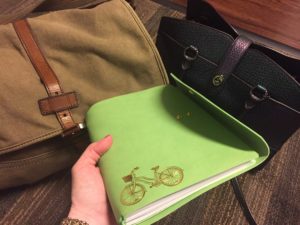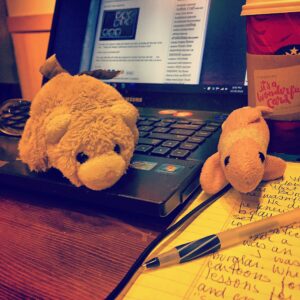“Art is the triumph over chaos.”~John Cheever, American writer
It has taken me, what, 3 years to finally believe that I can do this.
Do what? Everything.
Okay, maybe not everything, like walking through a pit of snakes, but my writing and social goals feel more controlled. After years of doing this ROW80 thing, I know how I can break it down. Maybe my goals have changed into something more realistic. Circumstances change, so does the state I live in. Whatever the reason or reasons, whatever the progress or not, I feel success-full this week. Look at what’s going on:
Remember, these are in no specific ordered, simply numbered for me to keep track of how many goals I have this time a’Round.
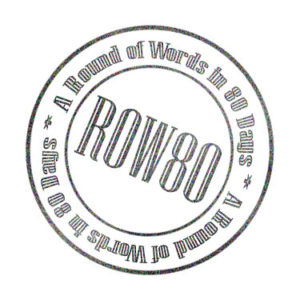
1–Craft a succinct 30-second book elevator speech.
I work on this every two weeks when I submit a piece of work for critique to the Montclair group. At the top, I put a synopsis of the story to this point so that the reader has some context going into the current critique. That synopsis now includes some version of this at the beginning. I’m practicing the summary of my book, the back cover blurb in one or two sentences.
2– Continue my 17 Writing Outlets in 2017 and follow through.
Last week, I mailed our “We’ve Moved” cards. Now, everyone, including my writing contacts, knows we live in New Jersey. This week, it’s time to contact them. I’ll at least make a list of who to contact, compiling phone numbers and email addresses from current business cards and older contact info.
3–Fine tune a regular social media schedule.
6–Schedule weekly Myself-Time to review all these goals.
These two are more linked than I realized. My current schedule appears to be a good one:
Monday–Email, home stuff
Tuesday–Write, focus on memoir/books, print out copies for biweekly critique group
Wednesday–Write blog posts, do social media
Thursday–Email, read blogs, reply to my blog comments
Friday, Saturday and Sunday–Still under construction
Appears. It’s not yet functional. What I need to do is assign social media outlets to a specific day or days. There are weekly Twitter chats I used to be active in. Mondays and Wednesdays used to be dedicated writing days and were therefore dedicated Instagram days. I have planner stickers that have Facebook/Instagram post on the same sticker, indicating both be done on the same day. I usually do that on Tuesdays.
When I lived in Michigan, I had a set work schedule, which meant I could fit in a set writing schedule. I do not have that structure yet in New Jersey. If Monday and Thursday are at-home days to do email, make calls and whatever, then Tuesday, Wednesday and Friday are out-of-the-house writing days. Wednesdays work for sure. You see, every other week, I have my Montclair memoir critique meeting. I’m treating off-week Wednesdays the same way and getting out with some writing plan. That’s a start.
4–Catch up, let go of and/or publish old blog posts.
The more I go back in my social media to catch up, the more I see my list of unpublished or in-draft posts. This really annoys me. Deleting them is a waste of my delicious writing, but I’m becoming less and less attached to them.
5–Catch up on email.
Monday and Thursday are email days. I did not keep that schedule last week. My inbox is as cluttered as my phone photos.
7–Work on memoir and other stories.
This is pretty cool: I’m actually doing that! Not my big memoir, mind you, but the two short memoirs that are already published but in desperate need of a deep rewrite. I missed my previous self-imposed publishing date for my Star Trek MomMmeoir, so I’m working on a revised deadline. I haven’t figured that out yet–the how or what or when–but I have the motivation to do so.
This is all a success, even the failures.



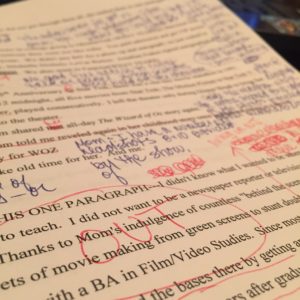

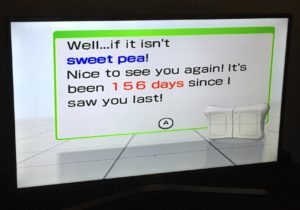
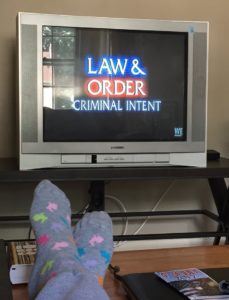 Back in New Jersey, Comcast cable finally set up. First program I watched? Law & Order Criminal Intent. It’s calming to have familiar programs as background noise again. I can’t write in silence. The nothingness creeps me out.
Back in New Jersey, Comcast cable finally set up. First program I watched? Law & Order Criminal Intent. It’s calming to have familiar programs as background noise again. I can’t write in silence. The nothingness creeps me out.